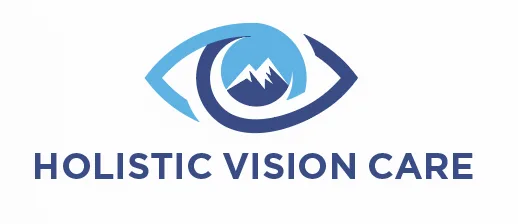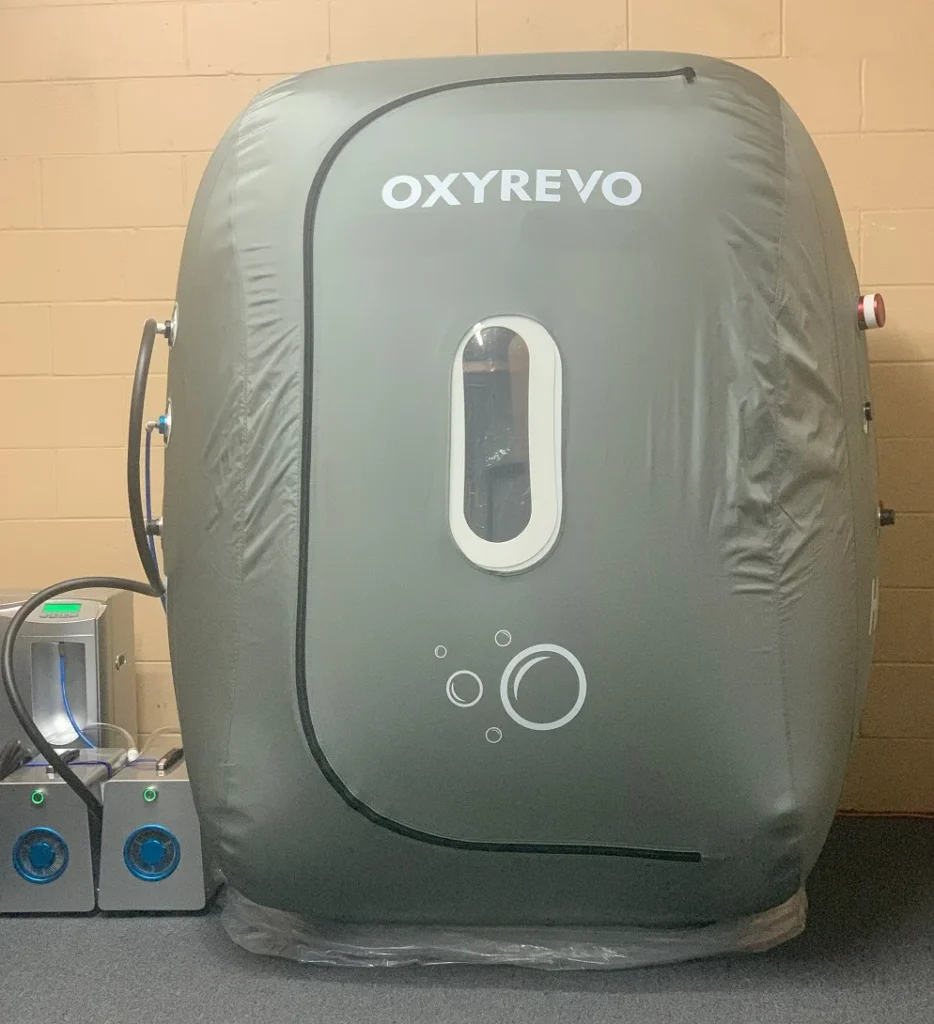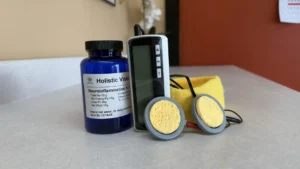Hyperbaric Oxygen Therapy for Diabetic Retinopathy
Six Ways Hyperbaric Oxygen Can Help Diabetic Retinopathy
Hyperbaric oxygen therapy (HBOT) has emerged as a promising treatment modality for various diabetic complications, including diabetic retinopathy. This eye condition, characterized by damage to the retinal blood vessels due to prolonged high blood sugar levels, is a leading cause of vision impairment and blindness among diabetic patients. Recent studies have shed light on the potential benefits of HBOT in managing and potentially improving outcomes for those with diabetic retinopathy.
Mechanism of Action
HBOT involves breathing pure oxygen in a pressurized chamber, typically at 1 to 4 times the normal atmospheric pressure. This process significantly increases the amount of oxygen dissolved in the blood plasma, allowing it to reach areas with compromised blood flow more effectively (1.) In the context of diabetic retinopathy, this enhanced oxygen delivery can have several beneficial effects on the retinal tissue.
Improved Retinal Oxygenation
One of the primary benefits of HBOT for diabetic retinopathy is the improvement in retinal oxygenation. The retina, being one of the most metabolically active tissues in the body, has a high oxygen demand. In diabetic retinopathy, the compromised blood vessels struggle to meet this demand, leading to tissue hypoxia and subsequent damage. HBOT can help overcome this limitation by increasing the oxygen tension in the retinal tissue (1.)
Reduction in Retinal Edema
Studies have shown that HBOT can lead to a decrease in central macular thickness, indicating a reduction in retinal edema. A prospective study comparing diabetic patients with non-proliferative retinopathy who received HBOT for foot ulcers with a control group found that the HBOT group showed regression or stabilization of diabetic retinopathy lesions and a decrease in central macular thickness (2.) This reduction in edema can potentially improve visual acuity and overall retinal function.
Stabilization of Retinopathy Progression
Evidence suggests that HBOT may help stabilize or even regress the progression of diabetic retinopathy. The same study that observed reduced macular thickness also noted a regression or stabilization of diabetic retinopathy lesions in patients treated with HBOT (2.) This finding is particularly significant as it indicates that HBOT could potentially serve as an adjunctive treatment in managing retinal ischemia and capillary hyperpermeability in diabetic retinopathy as well as other chronic eye conditions.
Enhancement of Blood-Retinal Barrier Function
The blood-retinal barrier plays a crucial role in maintaining retinal homeostasis. In diabetic retinopathy, this barrier is often compromised, leading to fluid leakage and subsequent retinal damage. Animal studies have shown that HBOT may suppress the extent of blood-retinal barrier breakdown in diabetic subjects, indicating a protective effect (3.) This improvement in barrier function could be a key mechanism by which HBOT benefits patients with diabetic retinopathy.
Potential for Nerve Regeneration
While most research has focused on the vascular aspects of diabetic retinopathy, HBOT may also have beneficial effects on retinal nerve cells. Studies on diabetic neuropathy have shown that HBOT can improve blood flow to nerve cells, reduce pain and numbness, and potentially promote nerve regeneration (4.) These effects could potentially extend to the retinal nerve cells, although more research is needed to confirm this hypothesis.
Synergistic Effects with Conventional Treatments
HBOT is not intended to replace conventional treatments for diabetic retinopathy, such as laser photocoagulation or anti-VEGF injections. Instead, it may serve as a valuable adjunctive therapy. The improved oxygenation and potential stabilization of retinopathy progression could enhance the efficacy of other treatments, potentially leading to better overall outcomes for patients.
Considerations and Limitations
While the potential benefits of HBOT for diabetic retinopathy are promising, it’s important to note that research in this area is still ongoing. Some earlier theoretical concerns suggested that HBOT might worsen diabetic retinopathy due to its revascularization effect and the high retinal consumption of oxygen (3.) However, recent clinical observations have not supported these concerns, with studies showing either no change or improvement in retinopathy status after HBOT (5.)
Future Directions
As research in this field progresses, larger clinical trials are needed to fully elucidate the effects of HBOT on diabetic retinopathy. Future studies should focus on optimizing treatment protocols, identifying the most suitable candidates for HBOT, and investigating long-term outcomes. In conclusion, hyperbaric oxygen therapy shows promise as a potential adjunctive treatment for many chronic eye conditions including diabetic retinopathy. Its ability to improve retinal oxygenation, reduce macular edema, stabilize retinopathy progression, and enhance blood-retinal barrier function makes it an intriguing option for managing this complex condition. As our understanding of HBOT’s effects on diabetic retinopathy grows, it may become an increasingly valuable tool in the comprehensive care of diabetic patients with retinal complications.
- https://www.scirp.org/journal/paperinformation?paperid=113915
- https://pubmed.ncbi.nlm.nih.gov/31831276/
- https://www.ncbi.nlm.nih.gov/pmc/articles/PMC7262290/
- https://dynamicspinesport.com/blogs/medicine/hyperbaric-oxygen-therapy/
- https://www.medicalnewstoday.com/articles/hyperbaric-oxygen-therapy-for-diabetic-foot-ulcers





